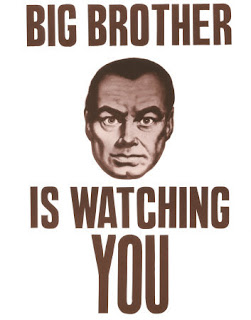
There are three certainties when you deal with censorship in Western countries. (a) Censorship never goes down well in Western countries. (b) If you try to impose censorship, refer to certainty (a). And (c), Orwell has to be dragged in there somewhere.
So after the Australian government proposed in January 2009 to impose some compulsory Internet safety filters, the headline "Big brother plan insults parents" summed up all three certainties in one.
The debate begins. In this corner, Communication Minister Stephen Conroy suggests that filtering Internet use is a vital part of making the vast world of the Internet a safer place for children. Like CyberSitters, the government wants to impose restrictions on Internet use in order to make sure children are not exposed to explicit or "unwanted" material.
But in this corner, passions are even more fierce. As Nick Minchin - author of the above mentioned Big Brother article - intones:
There is no technological substitute for adult supervision and it's
irresponsible and misleading to infer otherwise.
Three guesses whose side he's on. Minchin charges the government with ignoring expert opinion, which consistently shows that filters can be easily overcome by a technology-savvy user, and that adult supervision and law enforcers should not be usurped by CyberSitters. The $40 million proposed to be spent on this project, Minchin argues, could be better spent on funding for law enforcement, which he suggests would crack down on such explicit Internet material at its source.
While Minchin raises some good points, there are a few problems with his arguments that I could see. Firstly, adult supervision is definitely better than government censorship, for sure, but parents aren't omniscient. Think of the number of things you've slipped past your parents. While little kids may not be as adept at this, older kids certainly are; it's in the nature of childhood. Even the best parents can't possibly know everything their child is up to, and especially not on the Internet. Is it the old adage that you need to raise your children right and then hope they know the difference between right and wrong? Or is surveillance more necessary for one age over another? Where do we draw the line between censorship and protection?
And secondly, law enforcement won't solve all the problems on the Internet. While child porn is illegal, there is plenty of other objectionable material on the Internet that is perfectly legal - the dark side of free speech and general freedoms that we can take for granted in Australia. You can't legislate against a lot of what goes on on the Internet. While law enforcement is definitely a good step, it won't solve everything.
What are your thoughts on Internet censorship/filtering? Would you want to filter the Internet for your children?

